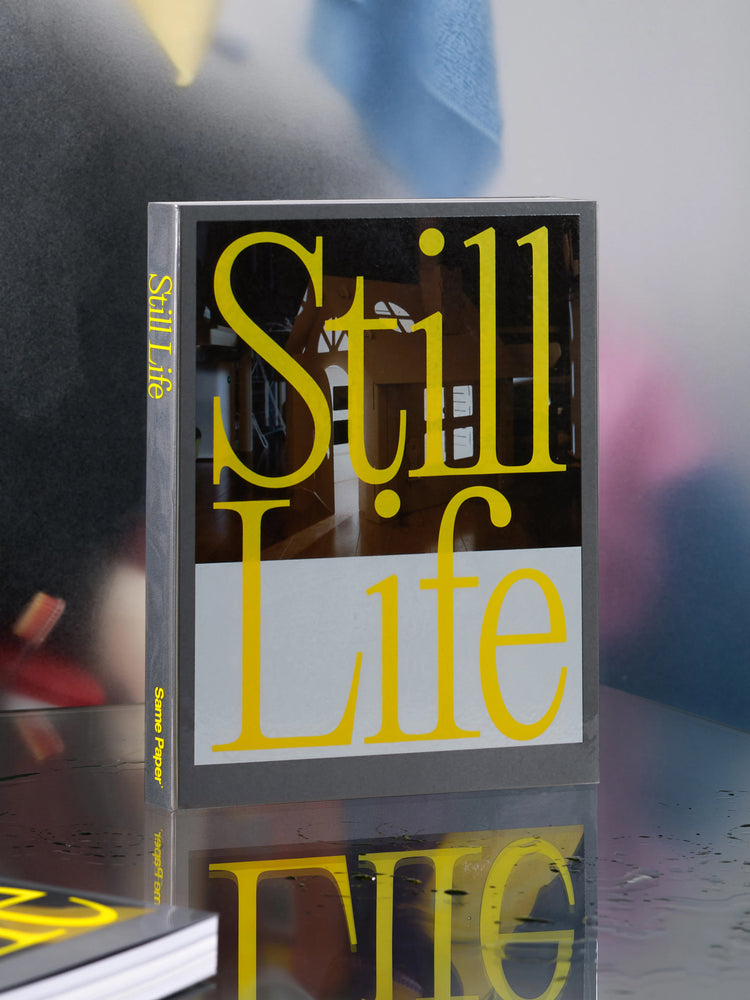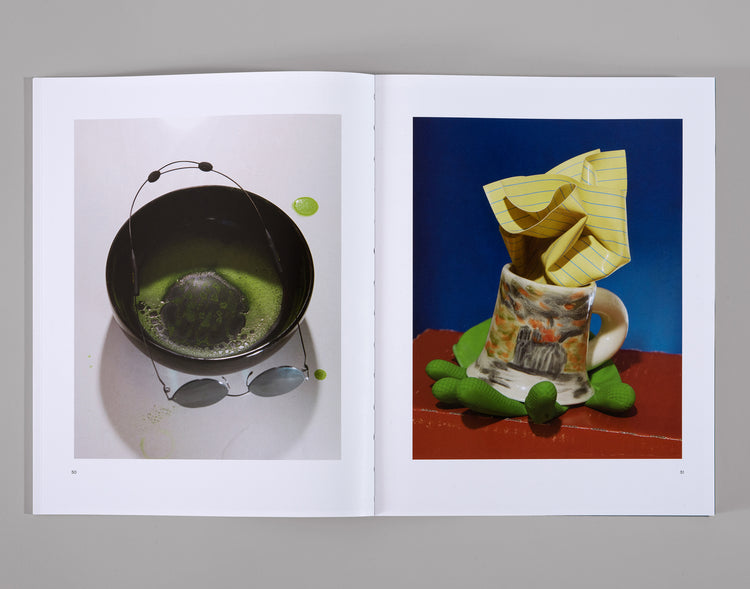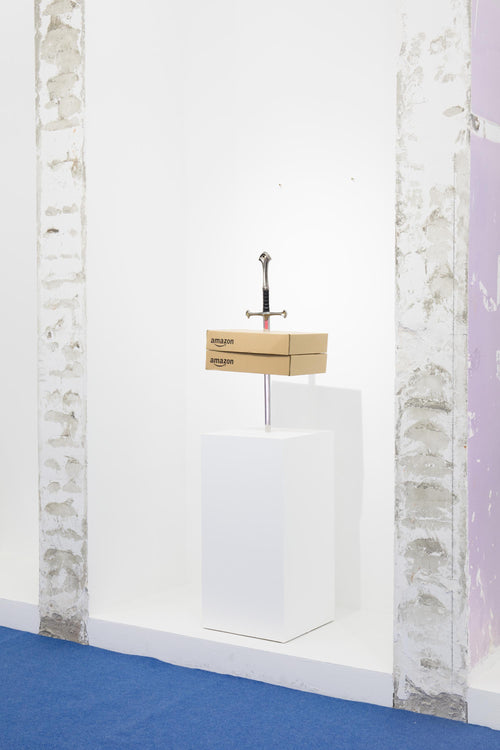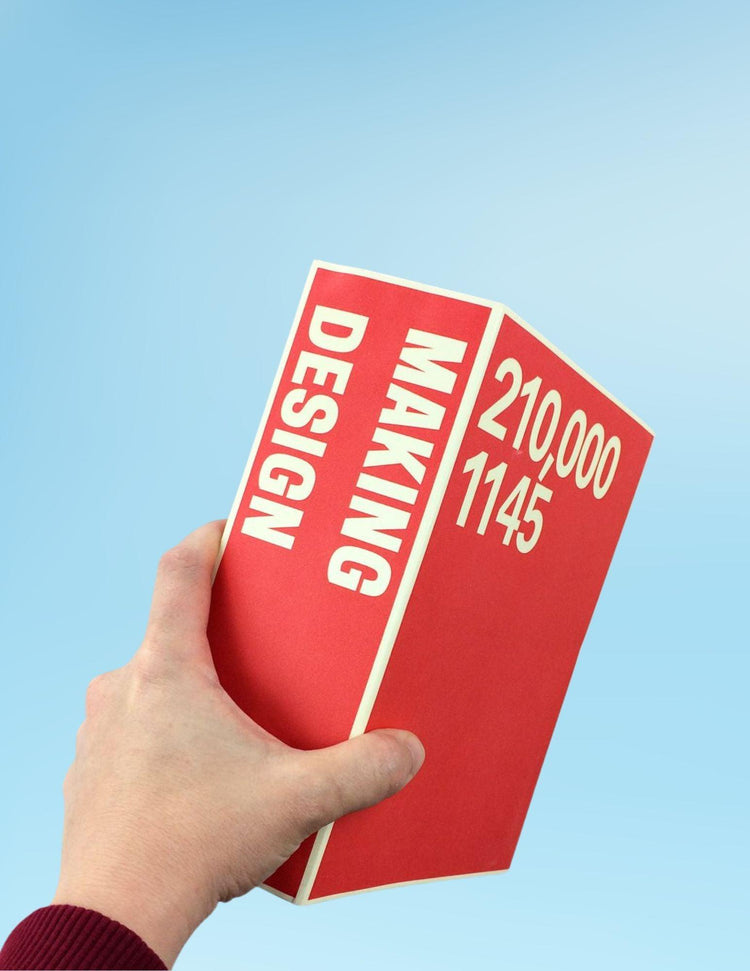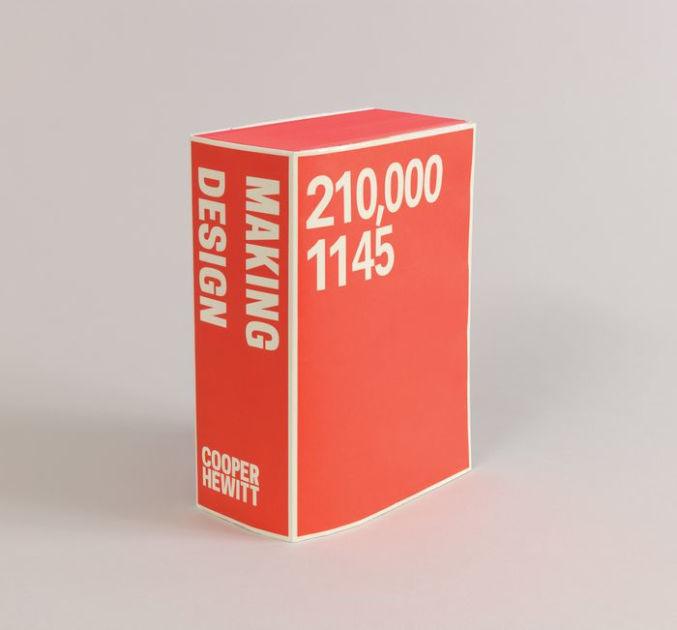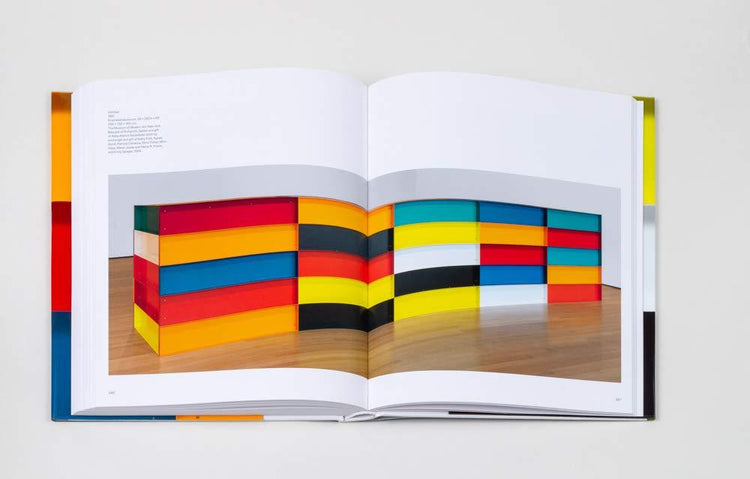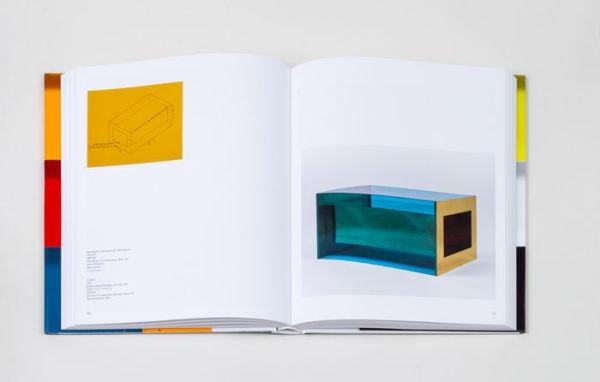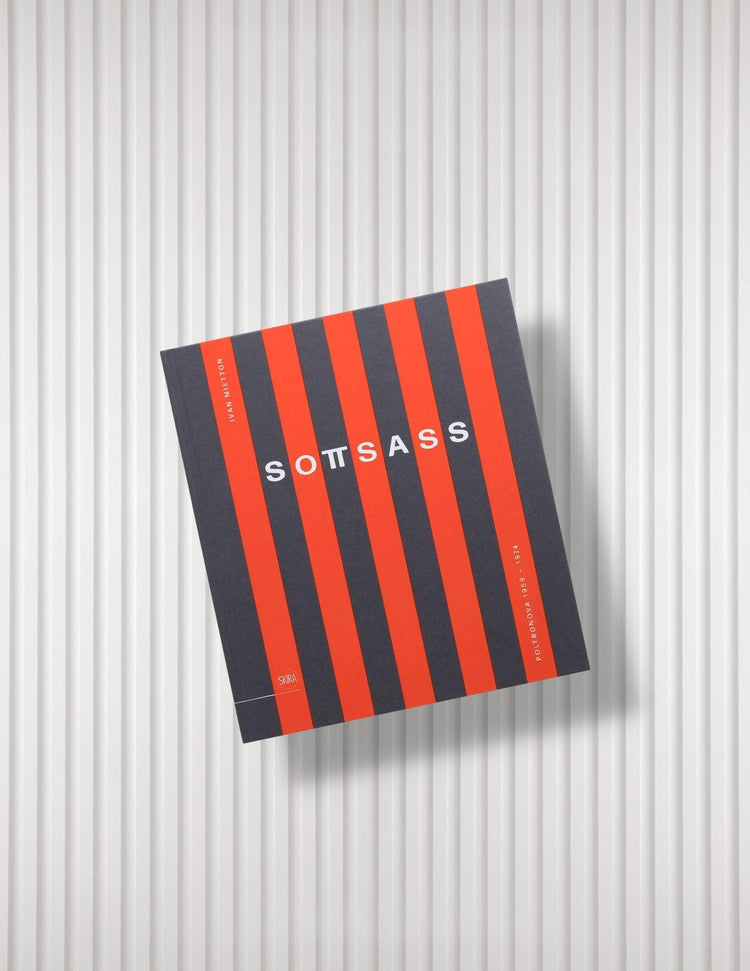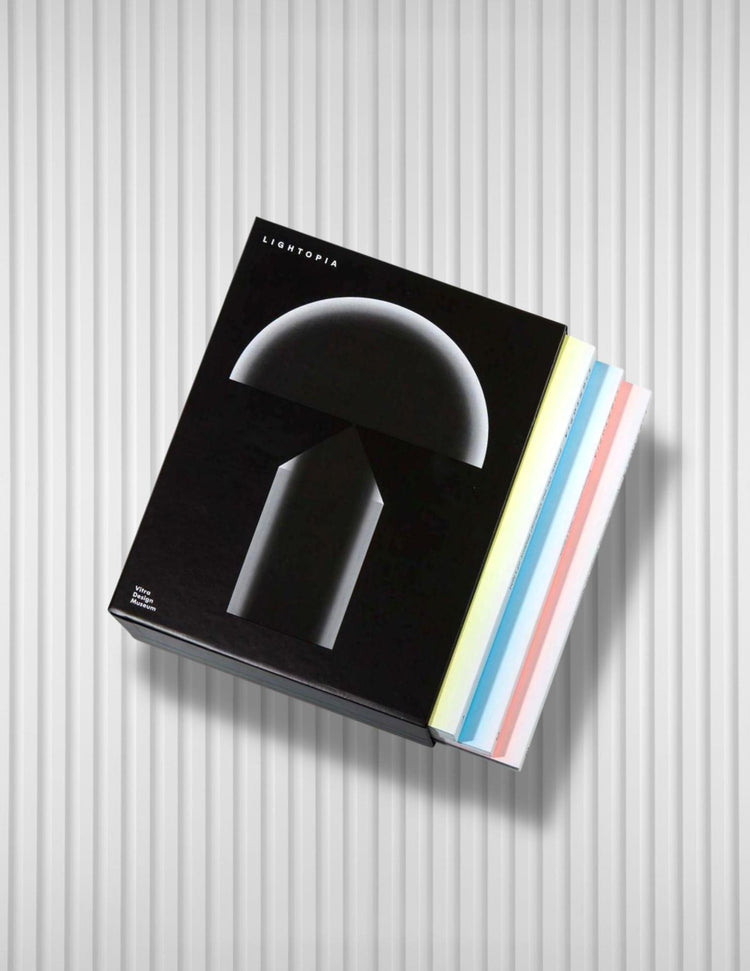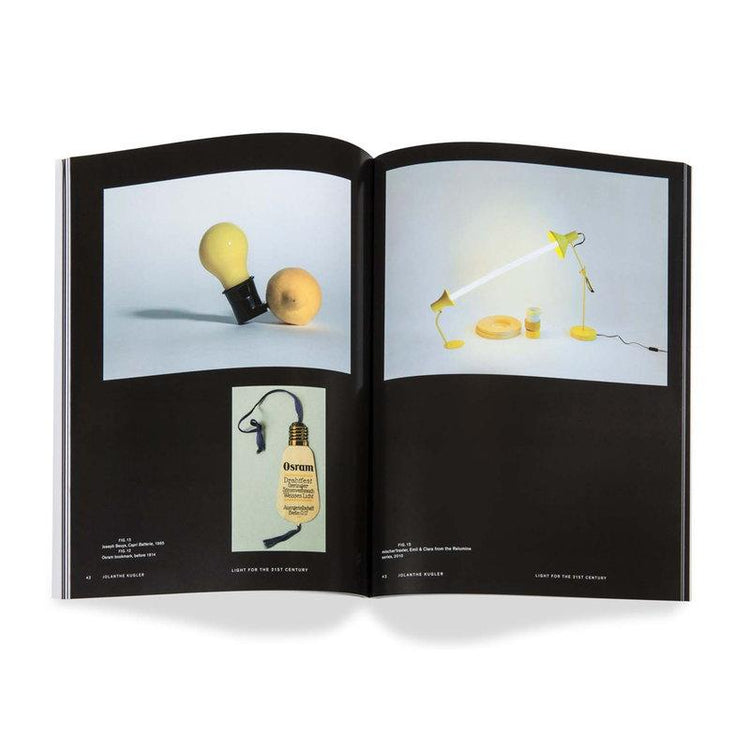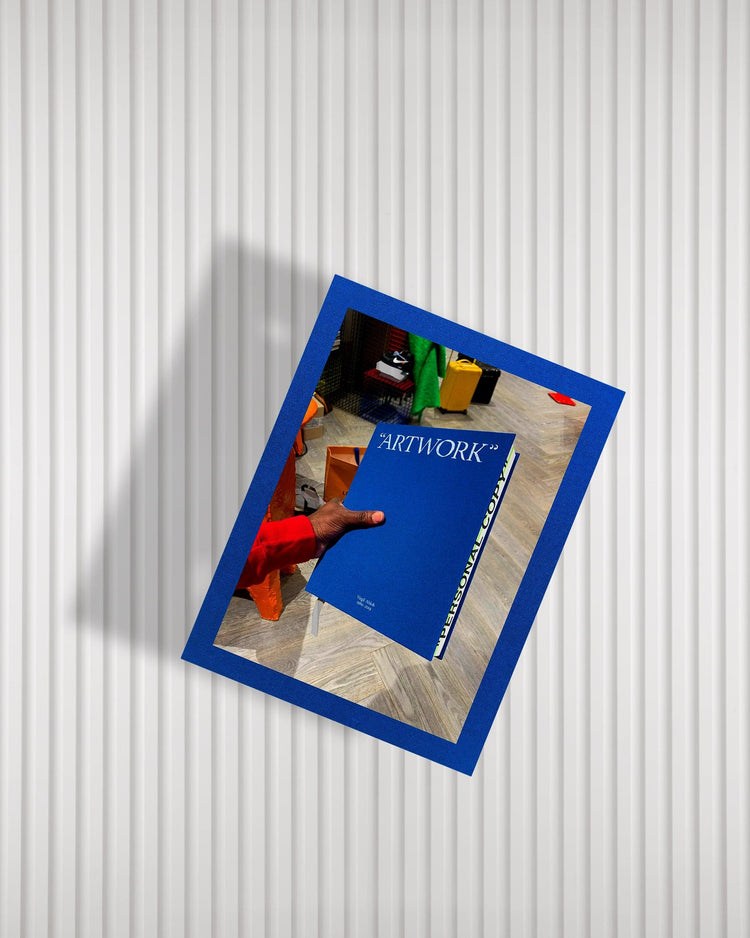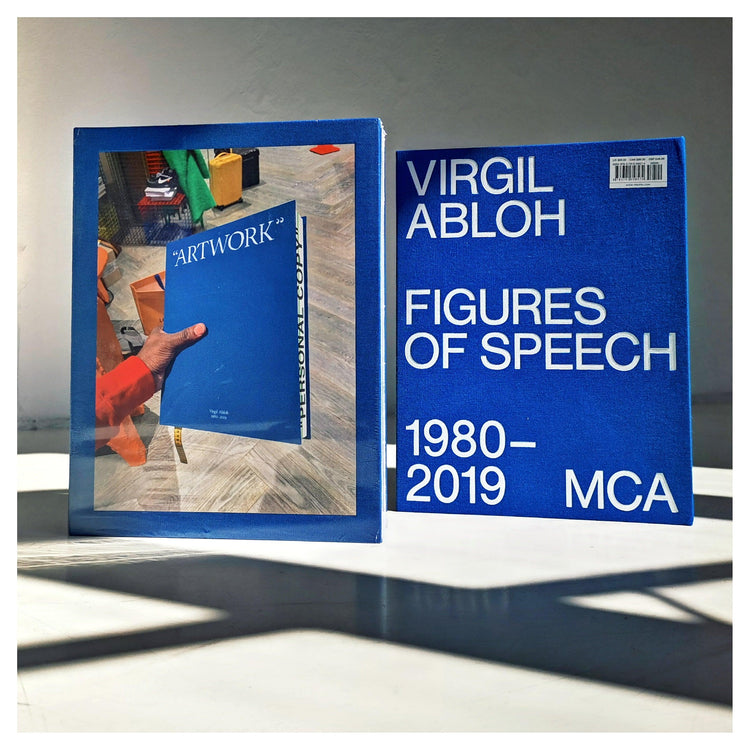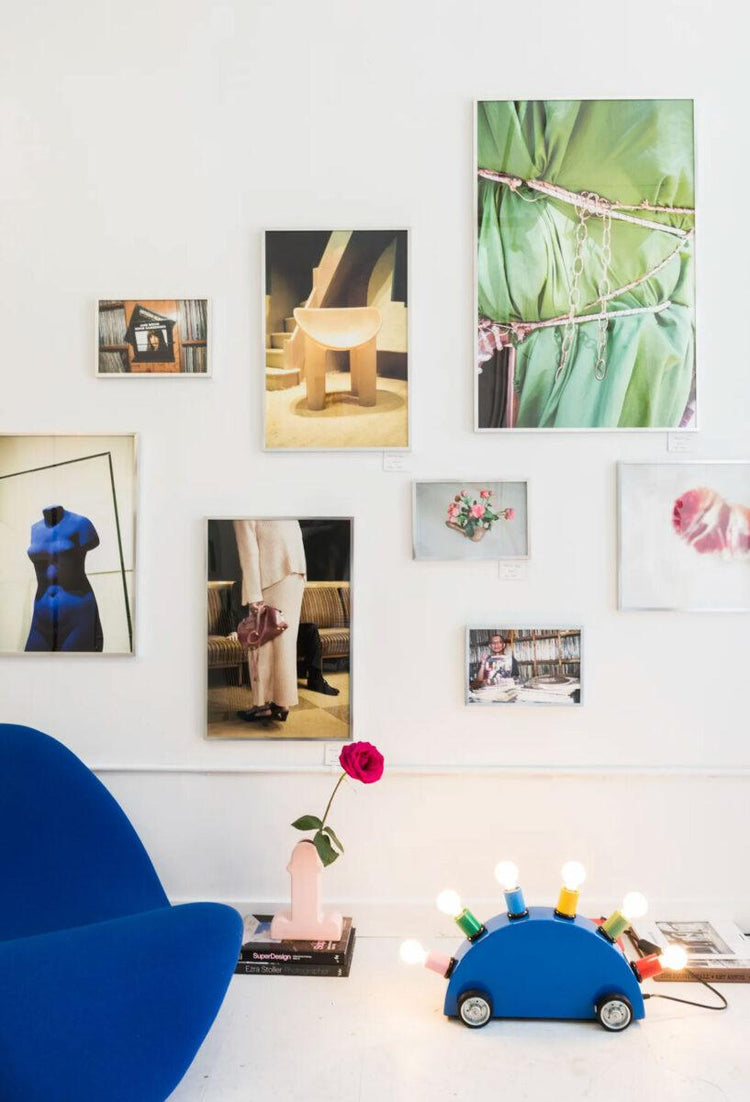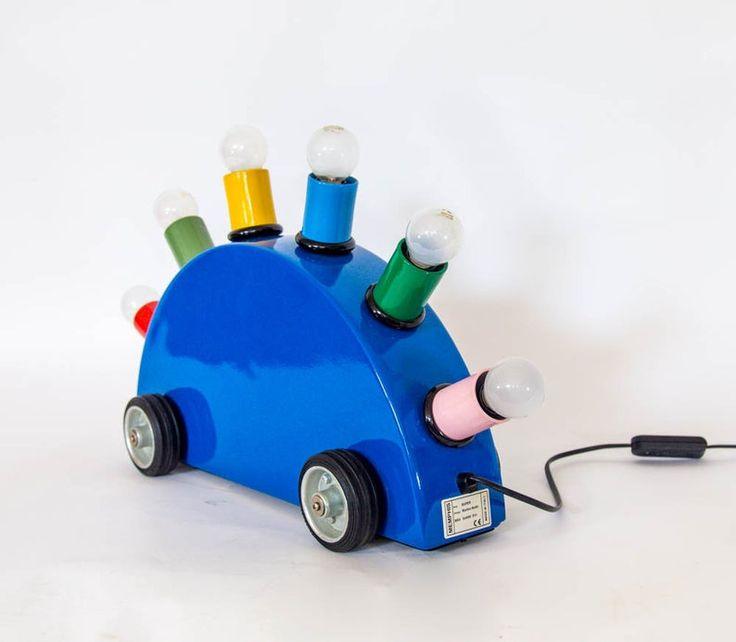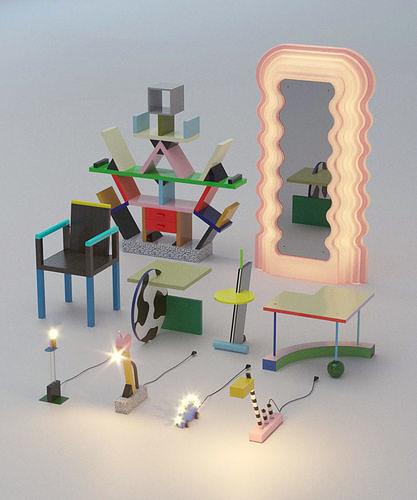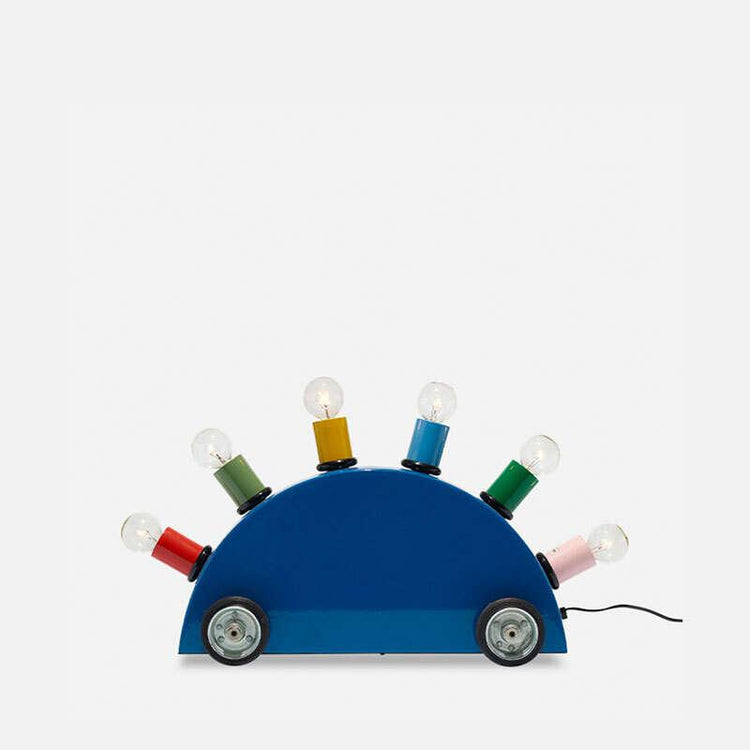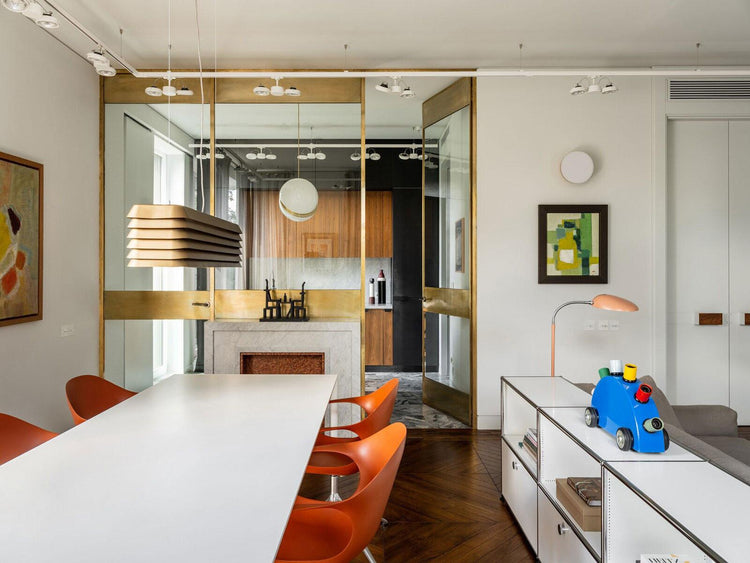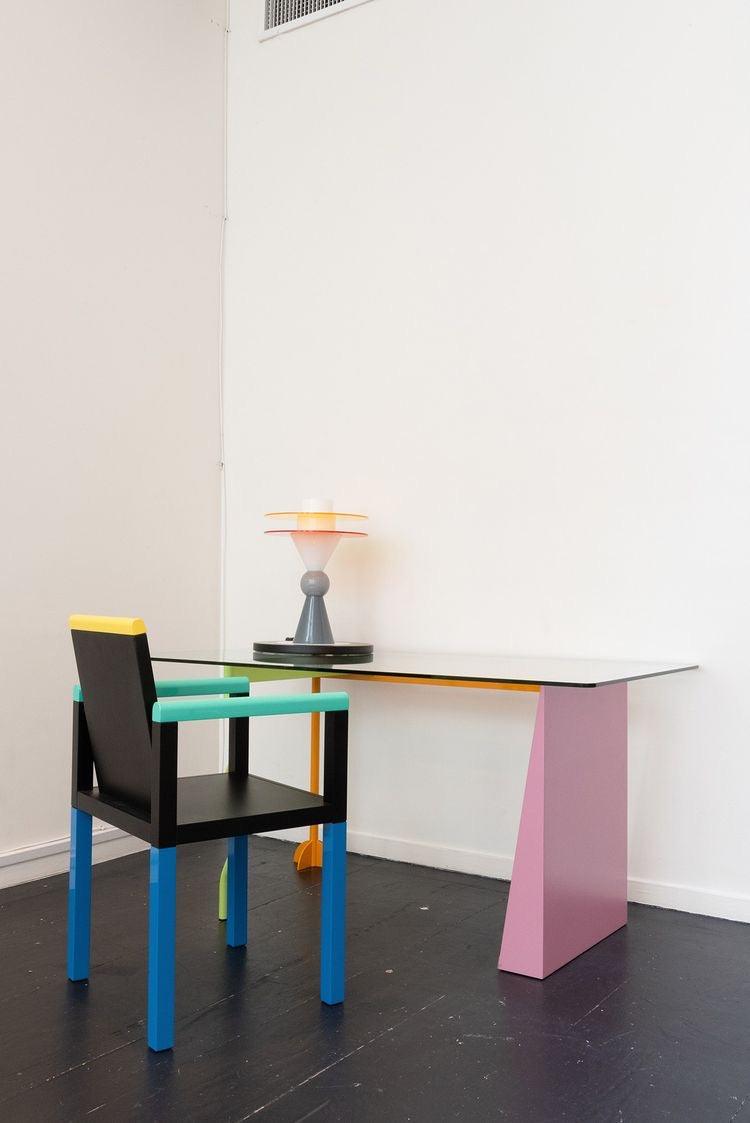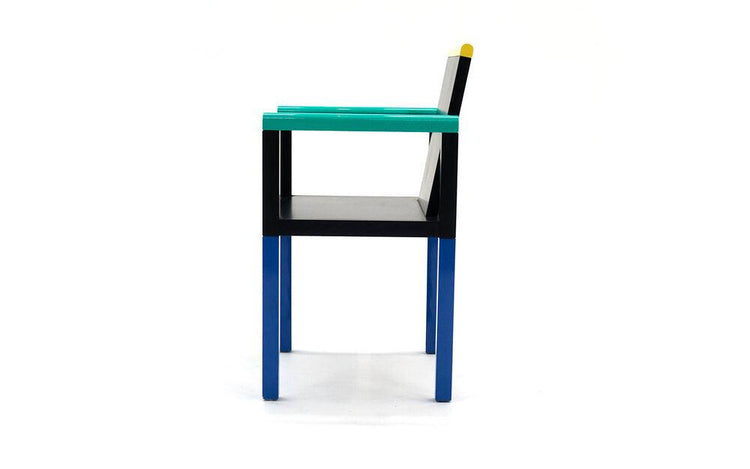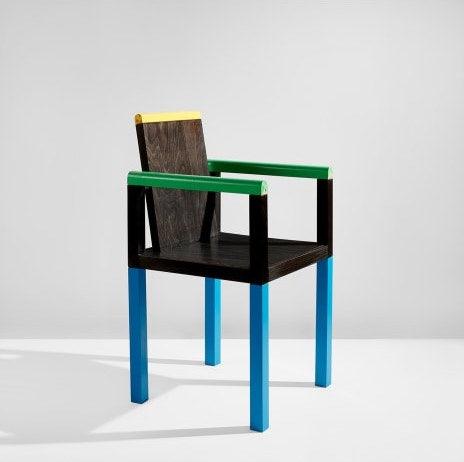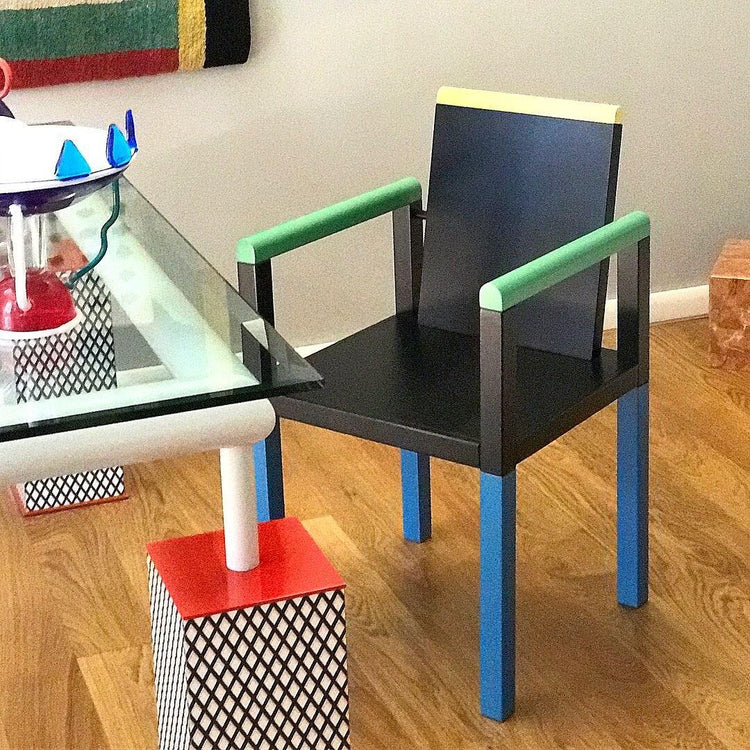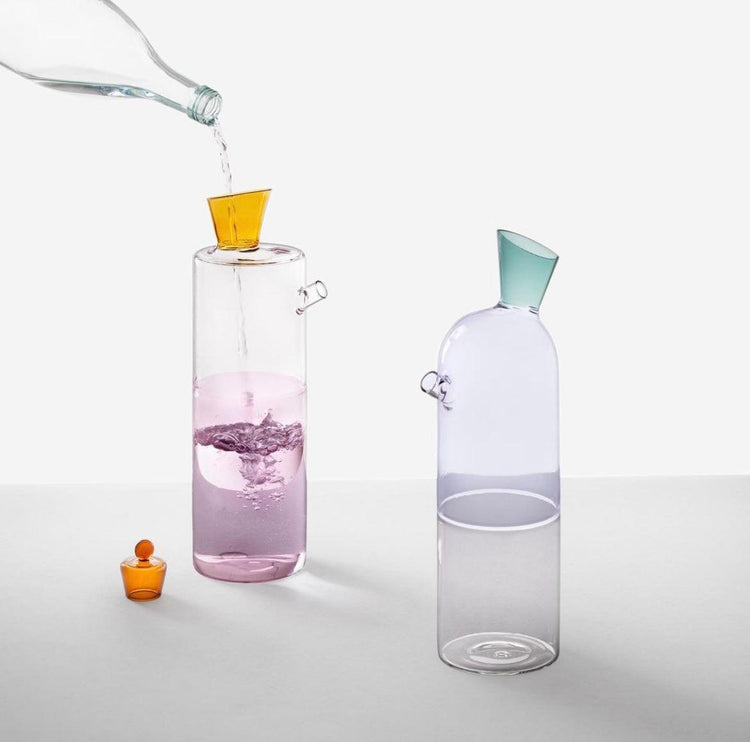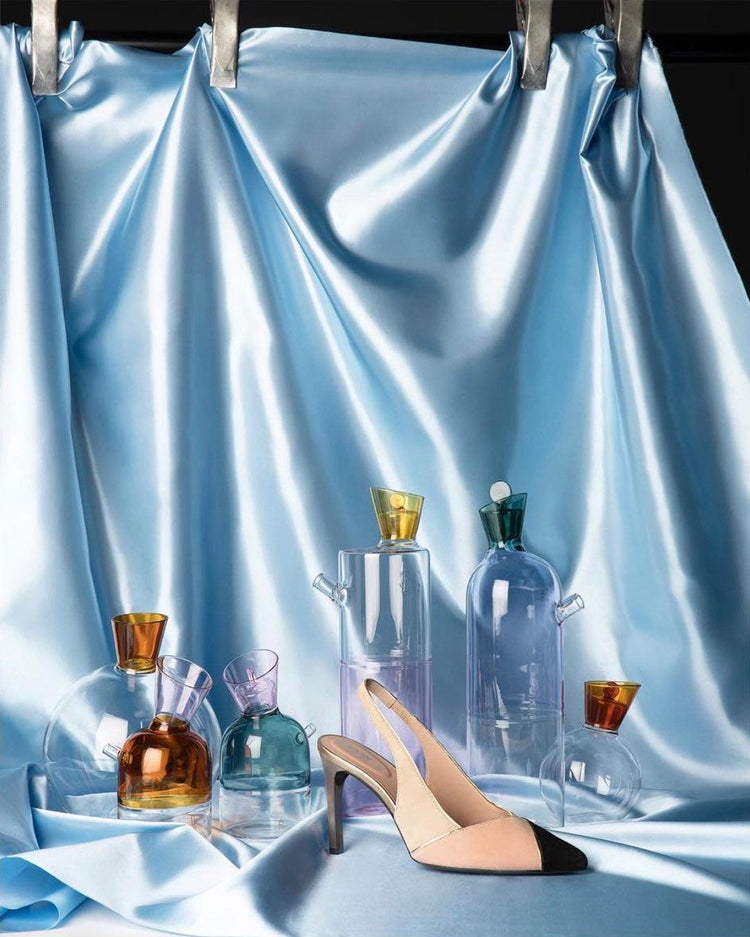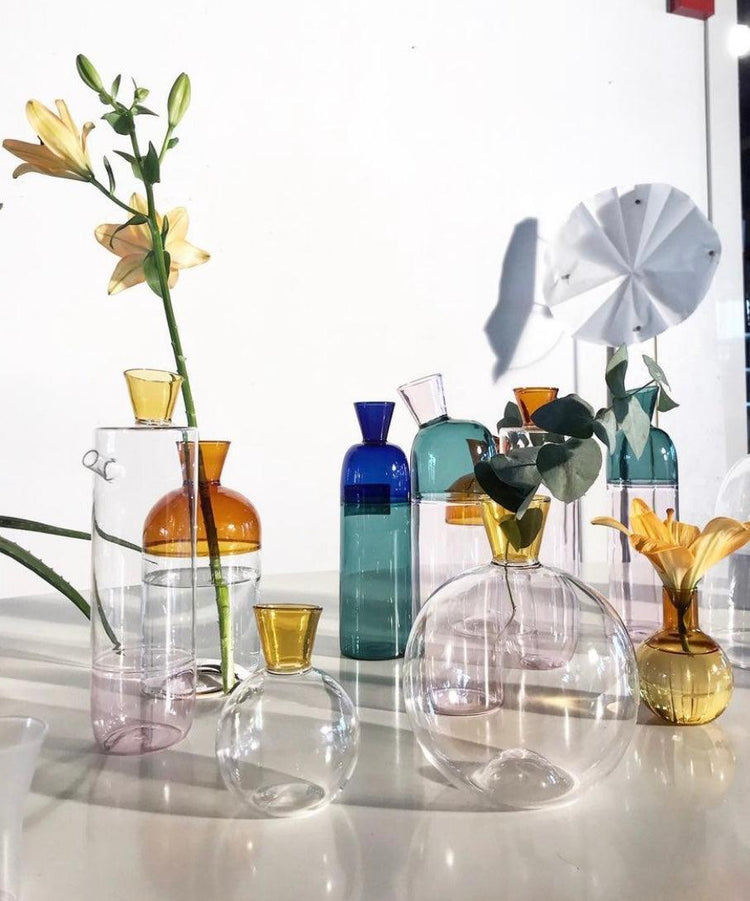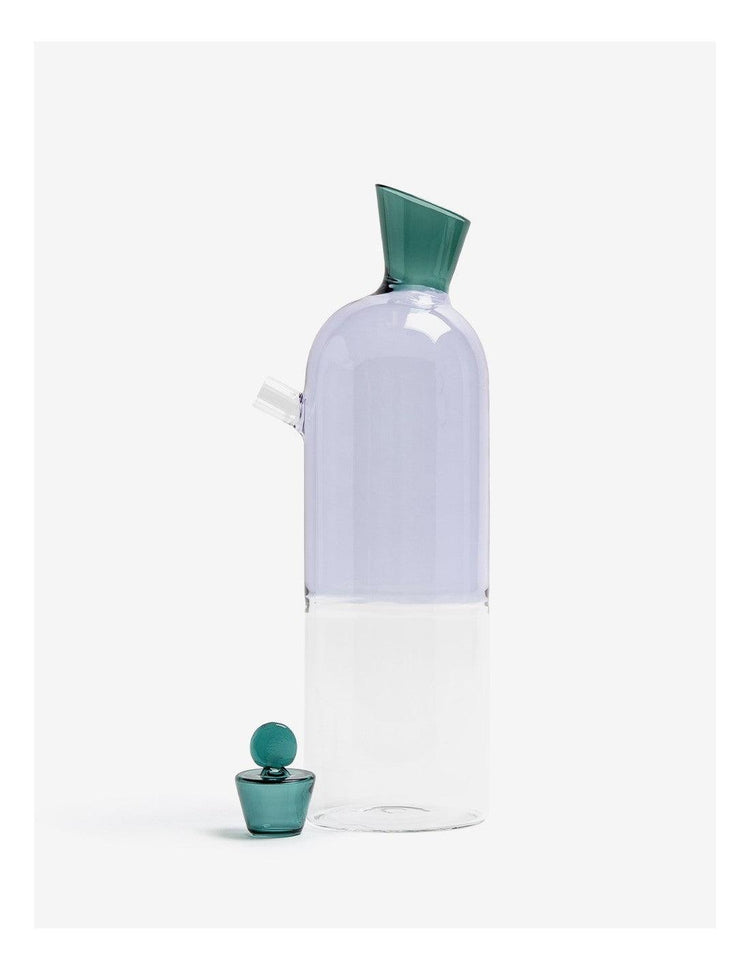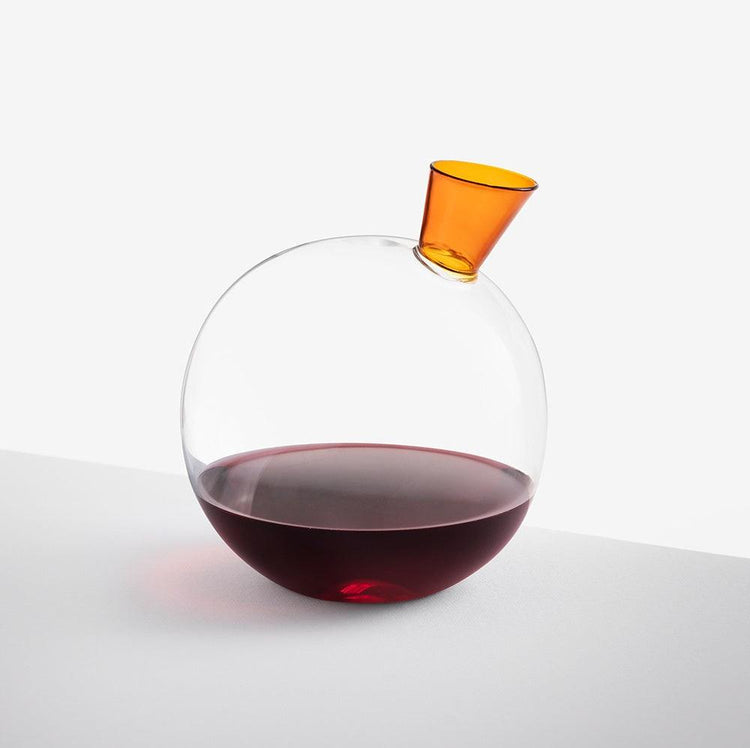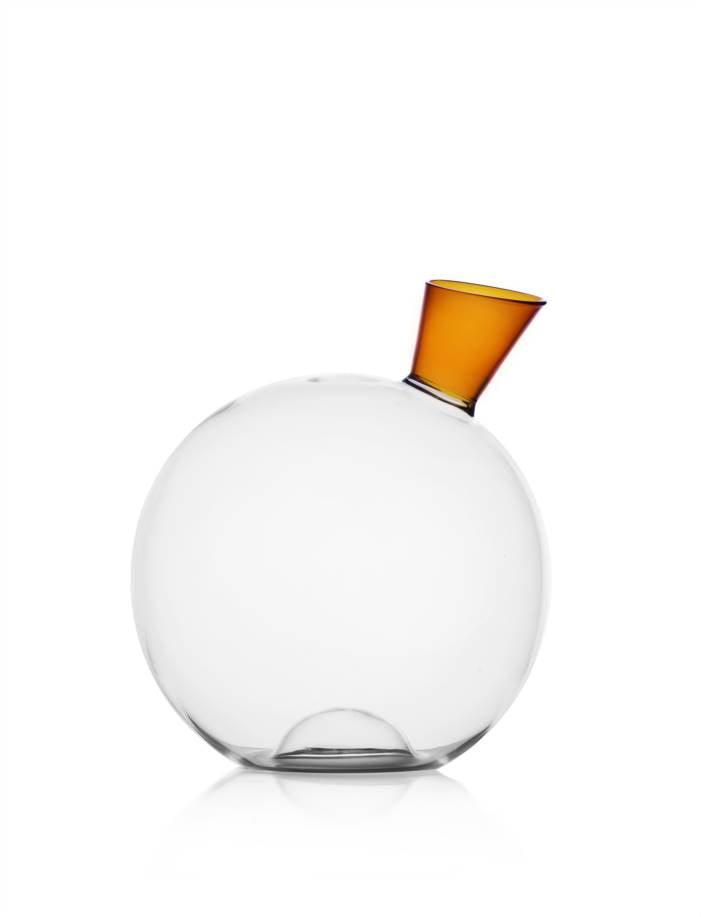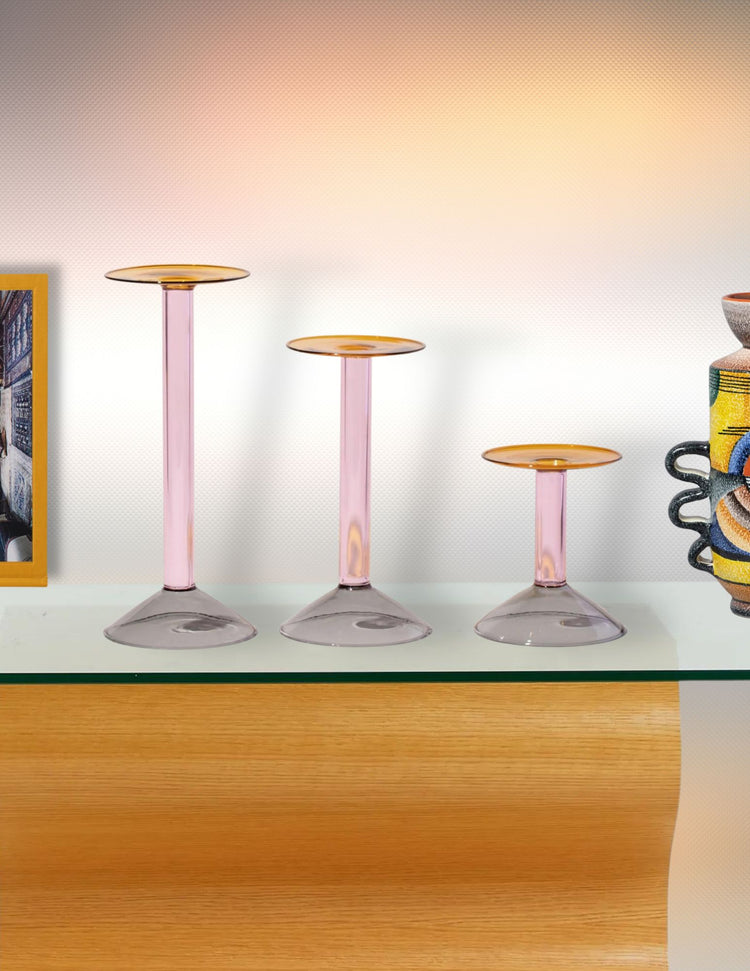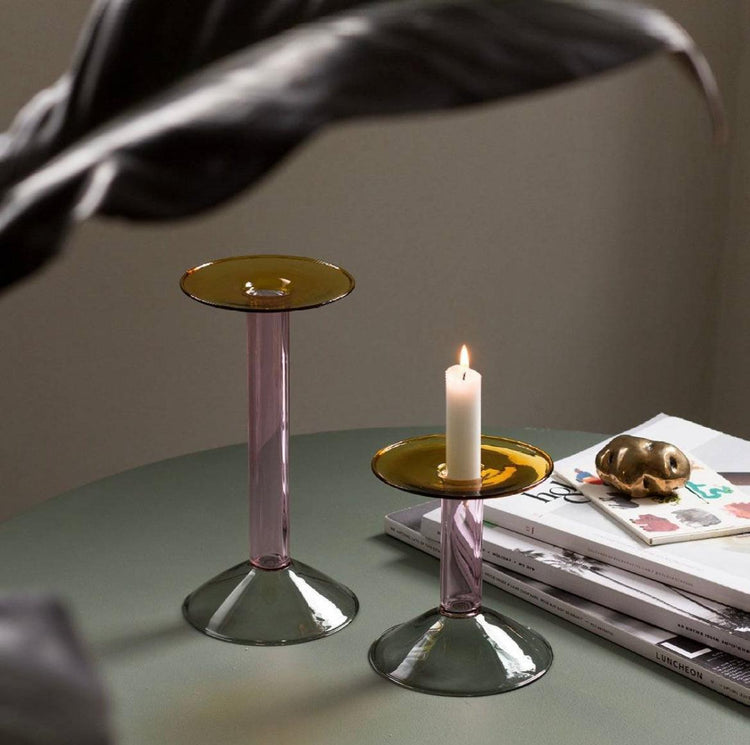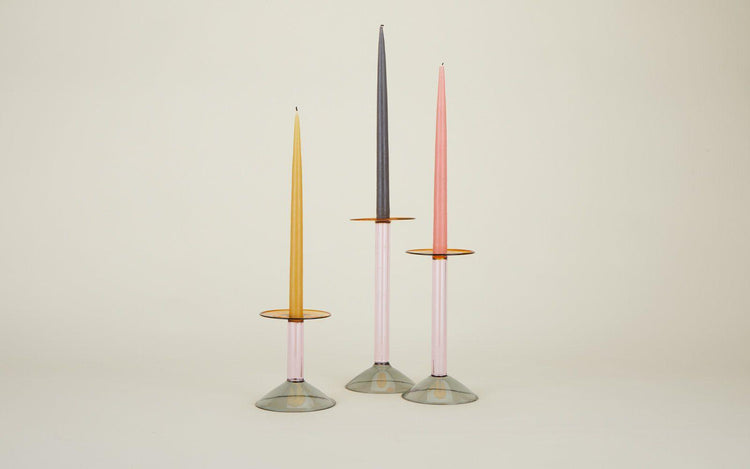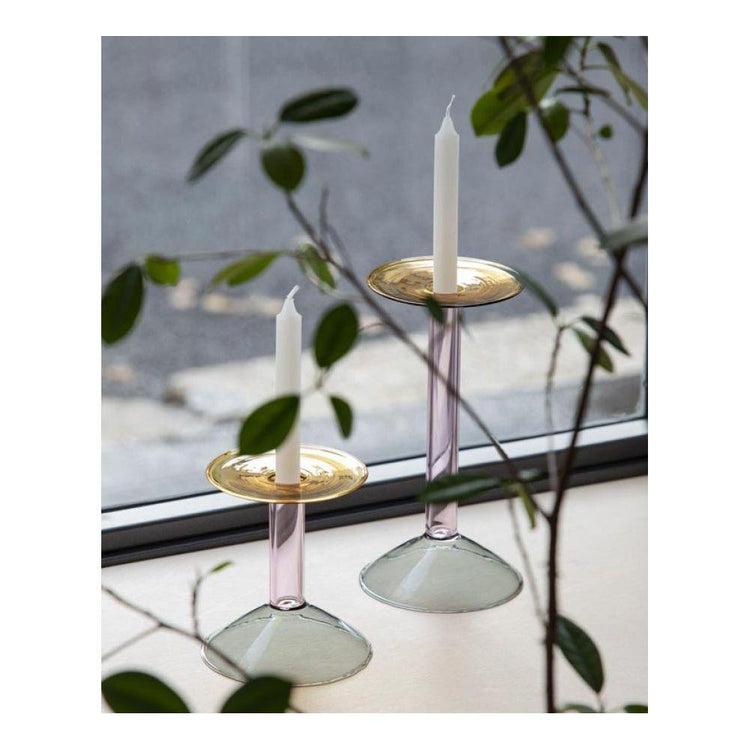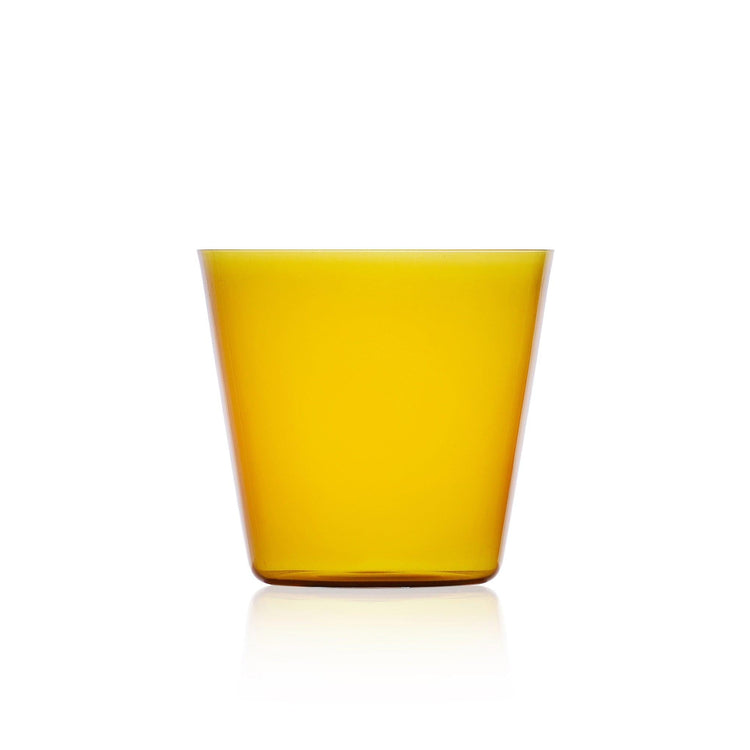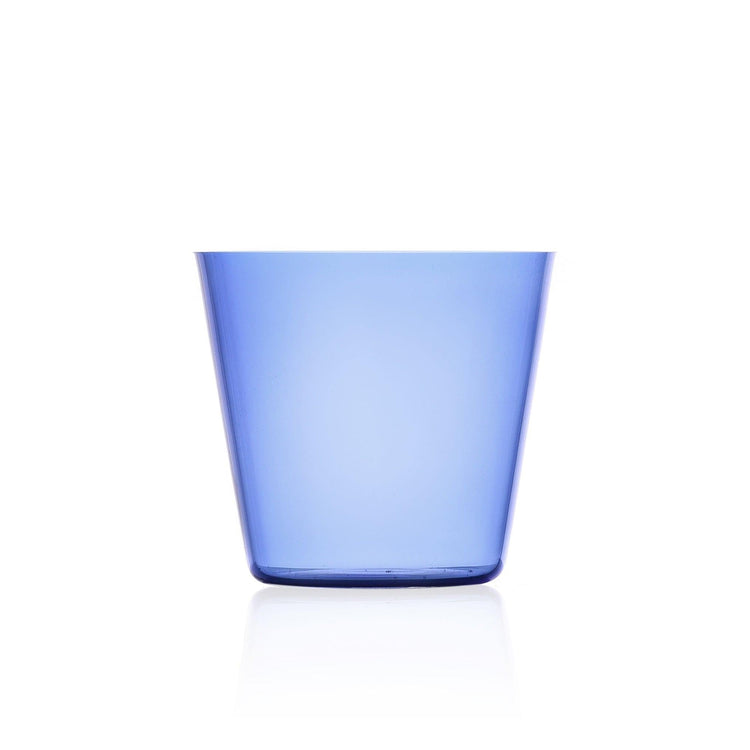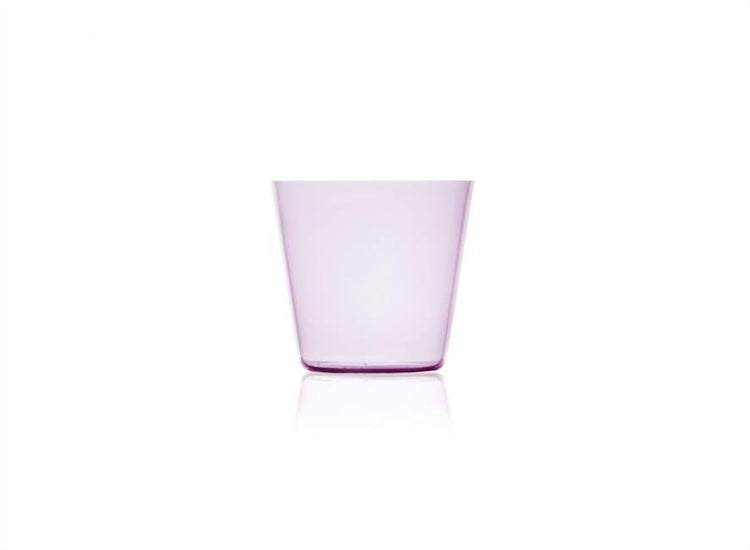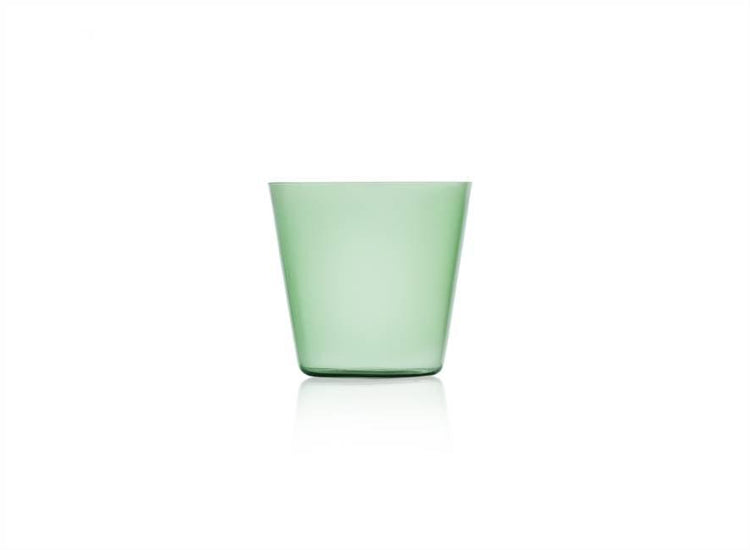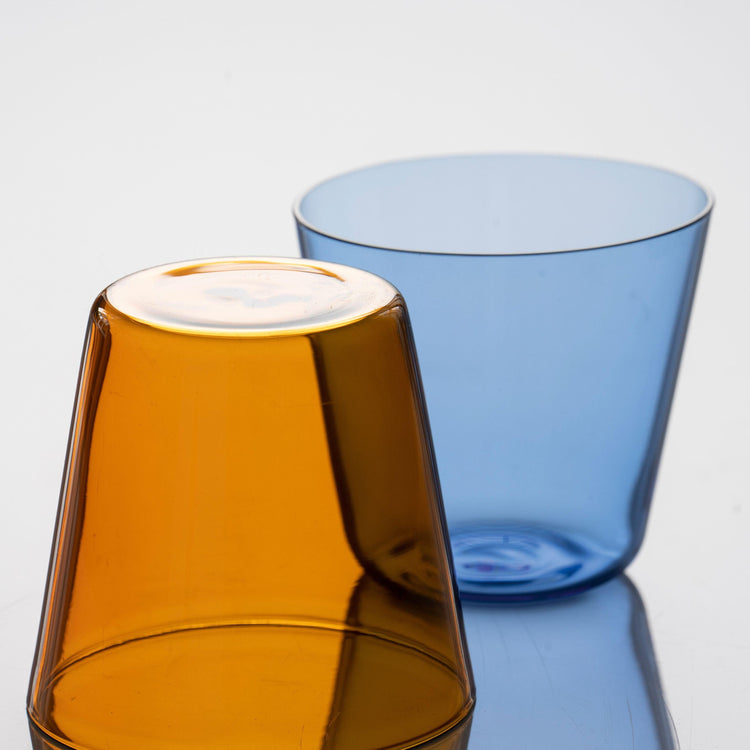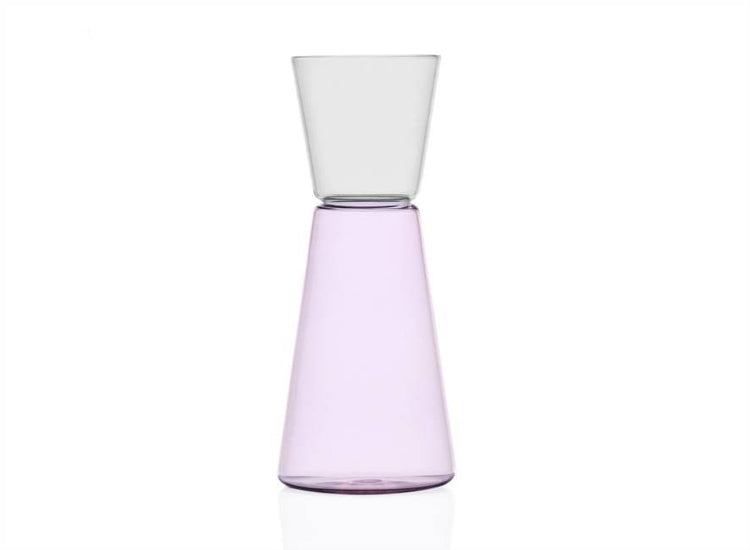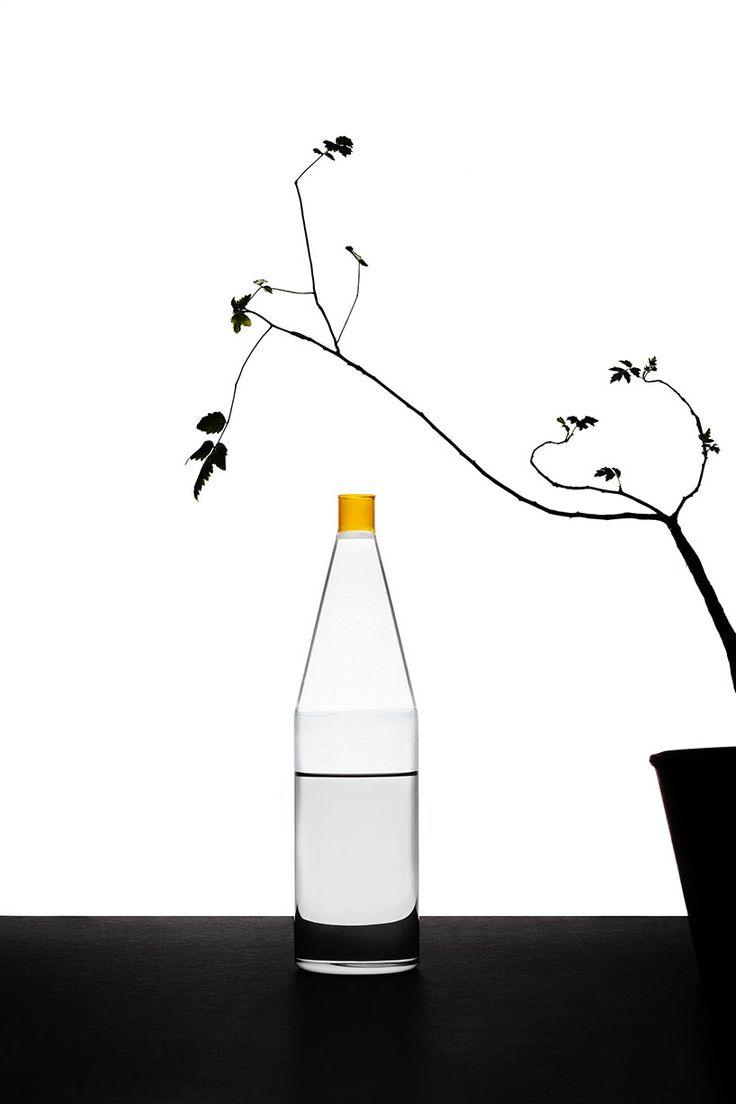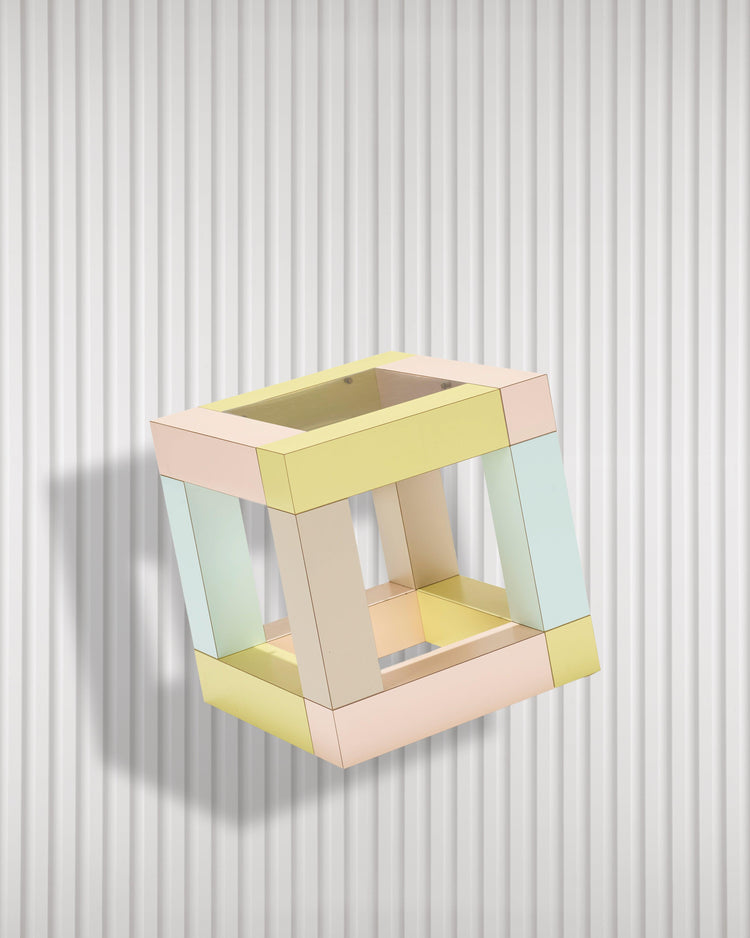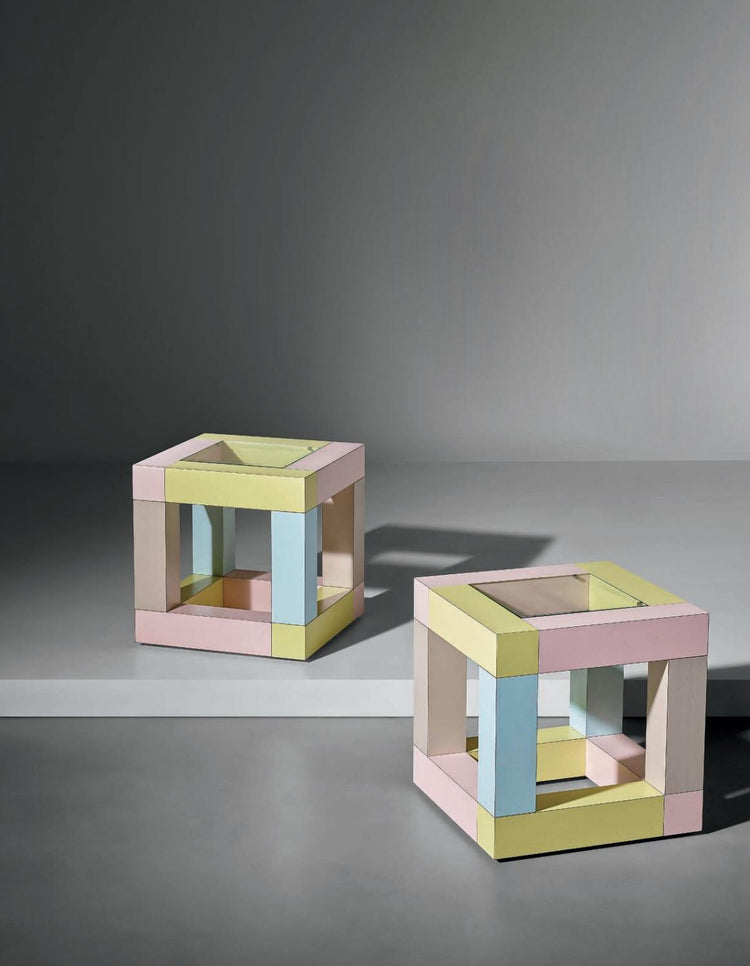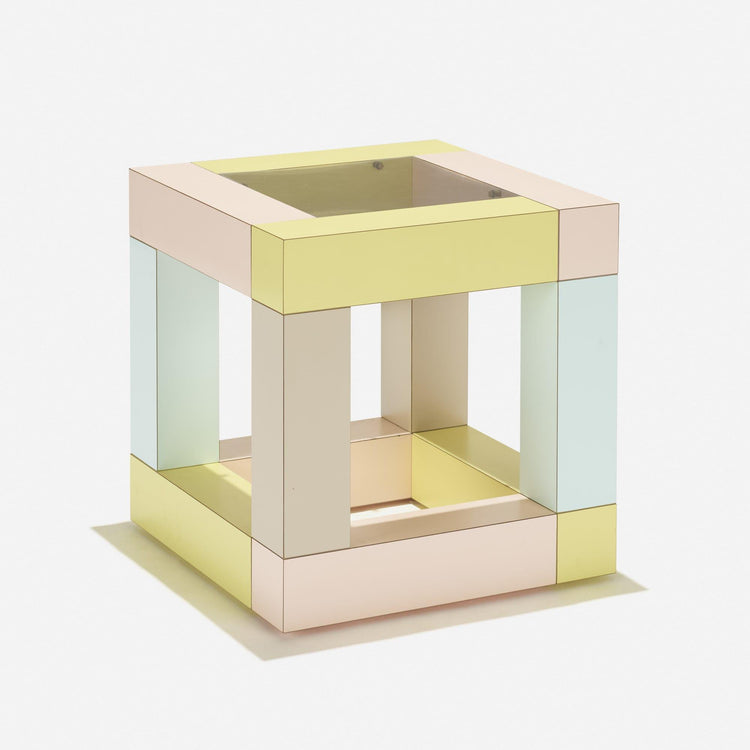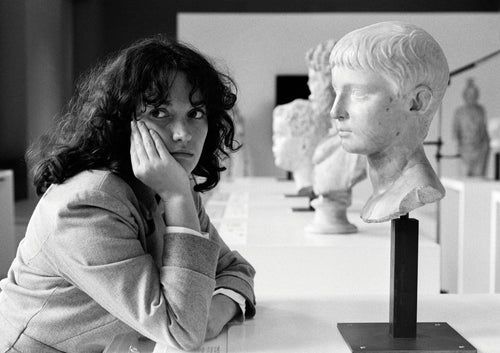
about the designer
Born in Paris in 1977, Camille Vivier started her photography career as an assistant at Purple magazine. After studying at the Grenoble Fine Arts School and Saint Martins School, she dedicated herself entirely to photography and started to work at the same time in the art and fashion worlds. In 1998, she was awarded the photography prize at the 12th Hyères Festival. In 2002, she was awarded the Villa Medicis international grant. Camille has contributed to various magazines, including: I-D, Dazed&Confused, Le Monde d’Hermès, Another Magazine, Numéro, Purple Magazine… and collaborated with brands such as Eres, Stella McCartney, Martin Margiela, Cartier, Wanda Nylon, Kenzo ... Her work has been exhibited in several galeries and institutions abroad as well as in France, including the CAPC Bordeaux ( “Jean-Luc Blanc/Opera rock”), Espace Electra ( “Le Voyage intérieur” ), Galerie 12Mail, Galerie Für moderne fotogra!e, Galerie Kamel Mennour, Maison Européenne de la Photographie (“Enquête d’identité” ), and during the Rencontres de la photographie d’Arles.

about the designer
Born in Paris in 1977, Camille Vivier started her photography career as an assistant at Purple magazine. After studying at the Grenoble Fine Arts School and Saint Martins School, she dedicated herself entirely to photography and started to work at the same time in the art and fashion worlds. In 1998, she was awarded the photography prize at the 12th Hyères Festival. In 2002, she was awarded the Villa Medicis international grant. Camille has contributed to various magazines, including: I-D, Dazed&Confused, Le Monde d’Hermès, Another Magazine, Numéro, Purple Magazine… and collaborated with brands such as Eres, Stella McCartney, Martin Margiela, Cartier, Wanda Nylon, Kenzo ... Her work has been exhibited in several galeries and institutions abroad as well as in France, including the CAPC Bordeaux ( “Jean-Luc Blanc/Opera rock”), Espace Electra ( “Le Voyage intérieur” ), Galerie 12Mail, Galerie Für moderne fotogra!e, Galerie Kamel Mennour, Maison Européenne de la Photographie (“Enquête d’identité” ), and during the Rencontres de la photographie d’Arles.
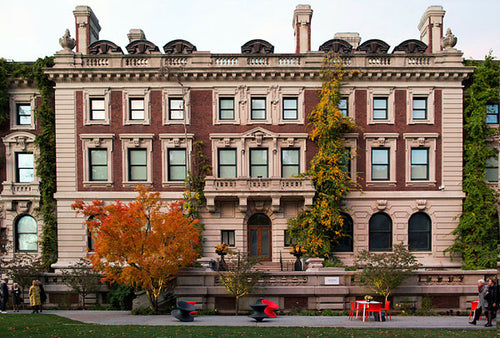
about the designer
Cooper Hewitt is the only museum in the United States devoted exclusively to historical and contemporary design, and is the steward of one of the most diverse and comprehensive design collections in existence—more than 215,000 design objects spanning 30 centuries. From ancient textiles and works on paper to icons of modern design and cutting-edge technologies, Cooper Hewitt’s collection serves as inspiration for creative work of all kinds and tells the story of design’s paramount importance in improving our world.

about the designer
Cooper Hewitt is the only museum in the United States devoted exclusively to historical and contemporary design, and is the steward of one of the most diverse and comprehensive design collections in existence—more than 215,000 design objects spanning 30 centuries. From ancient textiles and works on paper to icons of modern design and cutting-edge technologies, Cooper Hewitt’s collection serves as inspiration for creative work of all kinds and tells the story of design’s paramount importance in improving our world.
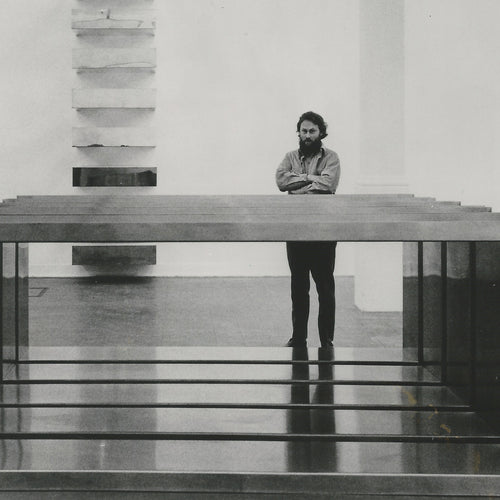
about the designer
Donald Judd (1928-94) began his professional career working as a painter while studying art history and writing art criticism. One of the foremost sculptors of our time, Judd refused this designation and other attempts to label his art: his revolutionary approach to form, materials, working methods and display went beyond the set of existing terms in midcentury New York. His work, in turn, changed the language of modern sculpture.

about the designer
Donald Judd (1928-94) began his professional career working as a painter while studying art history and writing art criticism. One of the foremost sculptors of our time, Judd refused this designation and other attempts to label his art: his revolutionary approach to form, materials, working methods and display went beyond the set of existing terms in midcentury New York. His work, in turn, changed the language of modern sculpture.

about the designer
Ettore Sottsass was a product designer and architect who had an enormous influence on Italian design in the second half of the 20th century. Sottsass was born in Innsbruck, Austria, and moved with his family to Italy so that he could study architecture at Turin Polytechnic University. In 1980, Sottsass co-founded the Milan design group Memphis with fellow avant-garde designers Andrea Branzi, Alessandro Mendini, Martine Bedin, and Michele de Lucchi. Aiming to promote radical design, they produced brightly colored, geometric, and often anti-functional furniture, lighting and ceramics. His work belongs to numerous public collections around the world, and continues to inspire young designers.

about the designer
Ettore Sottsass was a product designer and architect who had an enormous influence on Italian design in the second half of the 20th century. Sottsass was born in Innsbruck, Austria, and moved with his family to Italy so that he could study architecture at Turin Polytechnic University. In 1980, Sottsass co-founded the Milan design group Memphis with fellow avant-garde designers Andrea Branzi, Alessandro Mendini, Martine Bedin, and Michele de Lucchi. Aiming to promote radical design, they produced brightly colored, geometric, and often anti-functional furniture, lighting and ceramics. His work belongs to numerous public collections around the world, and continues to inspire young designers.
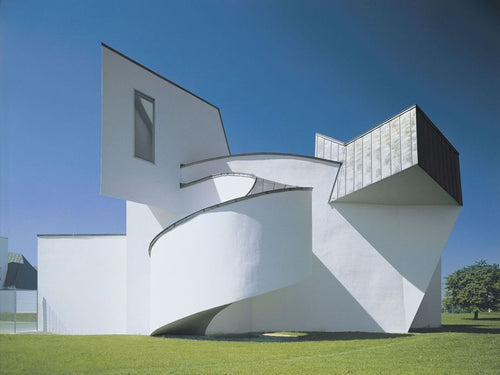
about the designer
The Vitra Design Museum numbers among the world's leading museums of design. It is dedicated to the research and presentation of design, past and present, and examines design's relationship to architecture, art and everyday culture. In the main museum building by Frank Gehry, the museum annually mounts two major temporary exhibitions, among them major solo retrospectives such as »An Eames Celebration« (2017) on designers Charles and Ray Eames, »Alexander Girard. A Designer's Universe« (2016) or Alvar Aalto (2014), as well as major exhibitions such as »Hello, Robot. Design between Human and Machine« (2017), »The Bauhaus #itsalldesign« (2015) or »Lightopia« (2013).

about the designer
The Vitra Design Museum numbers among the world's leading museums of design. It is dedicated to the research and presentation of design, past and present, and examines design's relationship to architecture, art and everyday culture. In the main museum building by Frank Gehry, the museum annually mounts two major temporary exhibitions, among them major solo retrospectives such as »An Eames Celebration« (2017) on designers Charles and Ray Eames, »Alexander Girard. A Designer's Universe« (2016) or Alvar Aalto (2014), as well as major exhibitions such as »Hello, Robot. Design between Human and Machine« (2017), »The Bauhaus #itsalldesign« (2015) or »Lightopia« (2013).

about the designer
Virgil Abloh (1980-2021) was a fashion designer and entrepreneur, and the artistic director of Louis Vuitton's men's wear collection from 2018 to 2021. He was also CEO of the Milan-based label Off-White, a fashion house he founded in 2013. Born in Rockford, Illinois, to Ghanaian parents, he entered the world of fashion with an internship at Fendi in 2009 alongside rapper Kanye West. The two began an artistic collaboration that would launch Abloh's career with the founding of Off-White. Time magazine named him one of the 100 most influential people in the world in 2018.

about the designer
Virgil Abloh (1980-2021) was a fashion designer and entrepreneur, and the artistic director of Louis Vuitton's men's wear collection from 2018 to 2021. He was also CEO of the Milan-based label Off-White, a fashion house he founded in 2013. Born in Rockford, Illinois, to Ghanaian parents, he entered the world of fashion with an internship at Fendi in 2009 alongside rapper Kanye West. The two began an artistic collaboration that would launch Abloh's career with the founding of Off-White. Time magazine named him one of the 100 most influential people in the world in 2018.
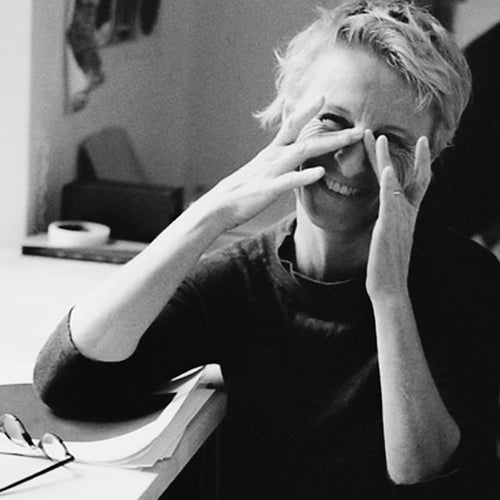
about the designer
Martine Bedin is an industrial designer, artist, architect and teacher. She studied Architecture at the École d’architecture in Paris. In 1978 she received a scholarship that took her to Florence, where she met the members of the Radical Architecture movement: the founders of Alchimia, Superstudio and Archizoom Associati. The founder of Superstudio, Adolfo Natalini, invited her to exhibit ‘The Decorated House’ at the Milan Triennale in 1979, where she met Michele De Lucchi and Ettore Sottsass. At the beginning of the ’80s she spent two years in Sottsass’s studio, working on her own projects and writing for a French design and architecture magazine. In 1981 she was among the co-founders of the Memphis Group. Bedin works with various materials, such as marble, wood, metal, and ceramics. Her work is exhibited in major museums and private collections, such as the Musée des Arts Décoratifs in Paris, the Victoria & Albert Museum in London and the Manufacture Nationale de Sèvre.

about the designer
Martine Bedin is an industrial designer, artist, architect and teacher. She studied Architecture at the École d’architecture in Paris. In 1978 she received a scholarship that took her to Florence, where she met the members of the Radical Architecture movement: the founders of Alchimia, Superstudio and Archizoom Associati. The founder of Superstudio, Adolfo Natalini, invited her to exhibit ‘The Decorated House’ at the Milan Triennale in 1979, where she met Michele De Lucchi and Ettore Sottsass. At the beginning of the ’80s she spent two years in Sottsass’s studio, working on her own projects and writing for a French design and architecture magazine. In 1981 she was among the co-founders of the Memphis Group. Bedin works with various materials, such as marble, wood, metal, and ceramics. Her work is exhibited in major museums and private collections, such as the Musée des Arts Décoratifs in Paris, the Victoria & Albert Museum in London and the Manufacture Nationale de Sèvre.
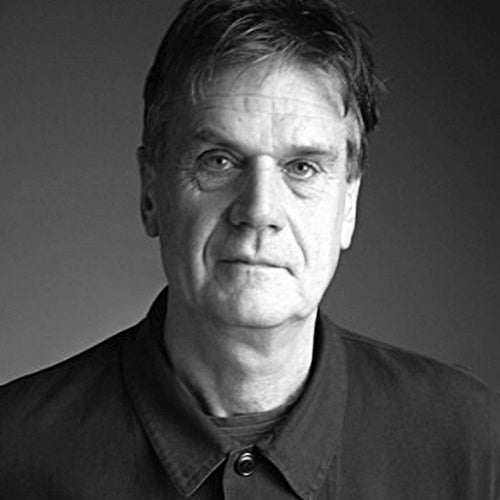
about the designer
George J. Sowden is a designer and product developer. He studied Architecture at Gloucestershire College of Art in the ‘60s. He moved to Milano in 1970 where he started working with Ettore Sottsass and Olivetti. In 1981, he was one of the co-founders of the Memphis Group. In the same year he founded his design studio through which he developed his activity as a consultant for industrial design, while continuing to develop his research work. In 2010 he founded the SOWDEN brand. Sowden’s interest in working with craftsmen and small companies, as well as in the practice of design and decoration, began in the 1970s and continues to this day. In 1990 his experimentation and research are objects of the exhibition “George J. Sowden Designing 1970–1990” organized by the Musée des Arts décoratifs et du Design in Bordeaux.

about the designer
George J. Sowden is a designer and product developer. He studied Architecture at Gloucestershire College of Art in the ‘60s. He moved to Milano in 1970 where he started working with Ettore Sottsass and Olivetti. In 1981, he was one of the co-founders of the Memphis Group. In the same year he founded his design studio through which he developed his activity as a consultant for industrial design, while continuing to develop his research work. In 2010 he founded the SOWDEN brand. Sowden’s interest in working with craftsmen and small companies, as well as in the practice of design and decoration, began in the 1970s and continues to this day. In 1990 his experimentation and research are objects of the exhibition “George J. Sowden Designing 1970–1990” organized by the Musée des Arts décoratifs et du Design in Bordeaux.
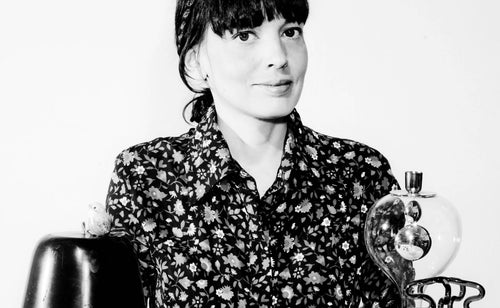
about the designer
Astrid Luglio was born in Naples and currently lives, designs and teaches in Milan. In 2018 she founded her own studio and began collaborating independently with companies, galleries and individuals both in Italy and abroad. She is co-founder of the collective The Ladies' Room with which she starts a reflection on the renewed need for an involvement of the senses in contemporary design. From the very beginning Astrid chose glass processing as a technique for her design experimentation, seeking narrative and functionality in the products she designs.

about the designer
Astrid Luglio was born in Naples and currently lives, designs and teaches in Milan. In 2018 she founded her own studio and began collaborating independently with companies, galleries and individuals both in Italy and abroad. She is co-founder of the collective The Ladies' Room with which she starts a reflection on the renewed need for an involvement of the senses in contemporary design. From the very beginning Astrid chose glass processing as a technique for her design experimentation, seeking narrative and functionality in the products she designs.

about the designer
Astrid Luglio was born in Naples and currently lives, designs and teaches in Milan. In 2018 she founded her own studio and began collaborating independently with companies, galleries and individuals both in Italy and abroad. She is co-founder of the collective The Ladies' Room with which she starts a reflection on the renewed need for an involvement of the senses in contemporary design. From the very beginning Astrid chose glass processing as a technique for her design experimentation, seeking narrative and functionality in the products she designs.

about the designer
Astrid Luglio was born in Naples and currently lives, designs and teaches in Milan. In 2018 she founded her own studio and began collaborating independently with companies, galleries and individuals both in Italy and abroad. She is co-founder of the collective The Ladies' Room with which she starts a reflection on the renewed need for an involvement of the senses in contemporary design. From the very beginning Astrid chose glass processing as a technique for her design experimentation, seeking narrative and functionality in the products she designs.

about the designer
MIST-O Noa Ikeuchi, Japanese, and Tommaso Nani, Italian, have a bond made of empathy and design, in which simplicity and rationality meet in a contemporary frame. The meeting and union of different meanings and symbols is at the center of their philosophy. Objects and relations arise from these encounters.

about the designer
MIST-O Noa Ikeuchi, Japanese, and Tommaso Nani, Italian, have a bond made of empathy and design, in which simplicity and rationality meet in a contemporary frame. The meeting and union of different meanings and symbols is at the center of their philosophy. Objects and relations arise from these encounters.

about the designer
MIST-O Noa Ikeuchi, Japanese, and Tommaso Nani, Italian, have a bond made of empathy and design, in which simplicity and rationality meet in a contemporary frame. The meeting and union of different meanings and symbols is at the center of their philosophy. Objects and relations arise from these encounters.

about the designer
MIST-O Noa Ikeuchi, Japanese, and Tommaso Nani, Italian, have a bond made of empathy and design, in which simplicity and rationality meet in a contemporary frame. The meeting and union of different meanings and symbols is at the center of their philosophy. Objects and relations arise from these encounters.

about the designer
MIST-O Noa Ikeuchi, Japanese, and Tommaso Nani, Italian, have a bond made of empathy and design, in which simplicity and rationality meet in a contemporary frame. The meeting and union of different meanings and symbols is at the center of their philosophy. Objects and relations arise from these encounters.

about the designer
MIST-O Noa Ikeuchi, Japanese, and Tommaso Nani, Italian, have a bond made of empathy and design, in which simplicity and rationality meet in a contemporary frame. The meeting and union of different meanings and symbols is at the center of their philosophy. Objects and relations arise from these encounters.
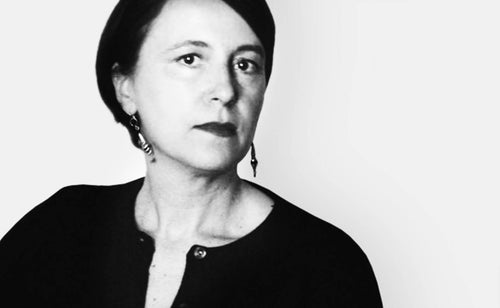
about the designer
Alba Gallizia graduated at Milan’s Politecnico in 1985, she was professor assistant at the Architectural Composition course of IUAV, Venice. In 1993, she begins her independent professional carreer in many different areas, working on architectural, interior and furniture design, corporate image, and design.

about the designer
Alba Gallizia graduated at Milan’s Politecnico in 1985, she was professor assistant at the Architectural Composition course of IUAV, Venice. In 1993, she begins her independent professional carreer in many different areas, working on architectural, interior and furniture design, corporate image, and design.
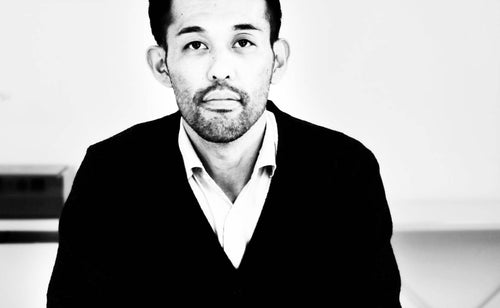
about the designer
Keiji Takeuchi established his studio in Milan in 2015 after working for Naoto Fukasawa for over a decade. In 2016 he received EDIDA Young Japanese talent award by Elle Deco Japan. Today Takeuchi is collaborating with major international brands such as Boffi, De Padova, Living Divani, Geiger / Hermanmiller and others for various design projects.

about the designer
Keiji Takeuchi established his studio in Milan in 2015 after working for Naoto Fukasawa for over a decade. In 2016 he received EDIDA Young Japanese talent award by Elle Deco Japan. Today Takeuchi is collaborating with major international brands such as Boffi, De Padova, Living Divani, Geiger / Hermanmiller and others for various design projects.

about the designer
Keiji Takeuchi established his studio in Milan in 2015 after working for Naoto Fukasawa for over a decade. In 2016 he received EDIDA Young Japanese talent award by Elle Deco Japan. Today Takeuchi is collaborating with major international brands such as Boffi, De Padova, Living Divani, Geiger / Hermanmiller and others for various design projects.

about the designer
Keiji Takeuchi established his studio in Milan in 2015 after working for Naoto Fukasawa for over a decade. In 2016 he received EDIDA Young Japanese talent award by Elle Deco Japan. Today Takeuchi is collaborating with major international brands such as Boffi, De Padova, Living Divani, Geiger / Hermanmiller and others for various design projects.

about the designer
MIST-O Noa Ikeuchi, Japanese, and Tommaso Nani, Italian, have a bond made of empathy and design, in which simplicity and rationality meet in a contemporary frame. The meeting and union of different meanings and symbols is at the center of their philosophy. Objects and relations arise from these encounters.

about the designer
MIST-O Noa Ikeuchi, Japanese, and Tommaso Nani, Italian, have a bond made of empathy and design, in which simplicity and rationality meet in a contemporary frame. The meeting and union of different meanings and symbols is at the center of their philosophy. Objects and relations arise from these encounters.

about the designer
MIST-O Noa Ikeuchi, Japanese, and Tommaso Nani, Italian, have a bond made of empathy and design, in which simplicity and rationality meet in a contemporary frame. The meeting and union of different meanings and symbols is at the center of their philosophy. Objects and relations arise from these encounters.

about the designer
MIST-O Noa Ikeuchi, Japanese, and Tommaso Nani, Italian, have a bond made of empathy and design, in which simplicity and rationality meet in a contemporary frame. The meeting and union of different meanings and symbols is at the center of their philosophy. Objects and relations arise from these encounters.
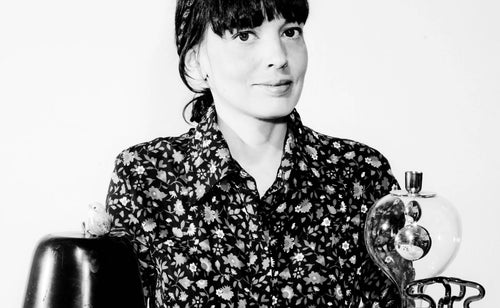
about the designer
Alessandra Baldereschi is Milanese and studied industrial design at the Domus Academy. She cooperates with various brands implementing lighting, décor and furnishings designs. Among her illustrious exhibitions: Triennale di Milano, Saint Etienne Biennal, Inside Design Amsterdam, Seoul Design Festival and Moss Gallery, New York.

about the designer
Alessandra Baldereschi is Milanese and studied industrial design at the Domus Academy. She cooperates with various brands implementing lighting, décor and furnishings designs. Among her illustrious exhibitions: Triennale di Milano, Saint Etienne Biennal, Inside Design Amsterdam, Seoul Design Festival and Moss Gallery, New York.

about the designer
Alessandra Baldereschi is Milanese and studied industrial design at the Domus Academy. She cooperates with various brands implementing lighting, décor and furnishings designs. Among her illustrious exhibitions: Triennale di Milano, Saint Etienne Biennal, Inside Design Amsterdam, Seoul Design Festival and Moss Gallery, New York.

about the designer
Alessandra Baldereschi is Milanese and studied industrial design at the Domus Academy. She cooperates with various brands implementing lighting, décor and furnishings designs. Among her illustrious exhibitions: Triennale di Milano, Saint Etienne Biennal, Inside Design Amsterdam, Seoul Design Festival and Moss Gallery, New York.

about the designer
Corrado Dotti collaborated with Matteo Thun and Partners for clients as Aprica, Gedy, Technogym, Leucas and Rapsel, in 2002 he joined the Armani Casa team. In 2006 he is art director for Natuzzi, creating its new collections. Since 2010, working as free-lancer in the field of industrial design and interior design.

about the designer
Corrado Dotti collaborated with Matteo Thun and Partners for clients as Aprica, Gedy, Technogym, Leucas and Rapsel, in 2002 he joined the Armani Casa team. In 2006 he is art director for Natuzzi, creating its new collections. Since 2010, working as free-lancer in the field of industrial design and interior design.

about the designer
MIST-O Noa Ikeuchi, Japanese, and Tommaso Nani, Italian, have a bond made of empathy and design, in which simplicity and rationality meet in a contemporary frame. The meeting and union of different meanings and symbols is at the center of their philosophy. Objects and relations arise from these encounters.

about the designer
MIST-O Noa Ikeuchi, Japanese, and Tommaso Nani, Italian, have a bond made of empathy and design, in which simplicity and rationality meet in a contemporary frame. The meeting and union of different meanings and symbols is at the center of their philosophy. Objects and relations arise from these encounters.

about the designer
Ettore Sottsass was a product designer and architect who had an enormous influence on Italian design in the second half of the 20th century. Sottsass was born in Innsbruck, Austria, and moved with his family to Italy so that he could study architecture at Turin Polytechnic University. In 1980, Sottsass co-founded the Milan design group Memphis with fellow avant-garde designers Andrea Branzi, Alessandro Mendini, Martine Bedin, and Michele de Lucchi. Aiming to promote radical design, they produced brightly colored, geometric, and often anti-functional furniture, lighting and ceramics. His work belongs to numerous public collections around the world, and continues to inspire young designers.

about the designer
Ettore Sottsass was a product designer and architect who had an enormous influence on Italian design in the second half of the 20th century. Sottsass was born in Innsbruck, Austria, and moved with his family to Italy so that he could study architecture at Turin Polytechnic University. In 1980, Sottsass co-founded the Milan design group Memphis with fellow avant-garde designers Andrea Branzi, Alessandro Mendini, Martine Bedin, and Michele de Lucchi. Aiming to promote radical design, they produced brightly colored, geometric, and often anti-functional furniture, lighting and ceramics. His work belongs to numerous public collections around the world, and continues to inspire young designers.














